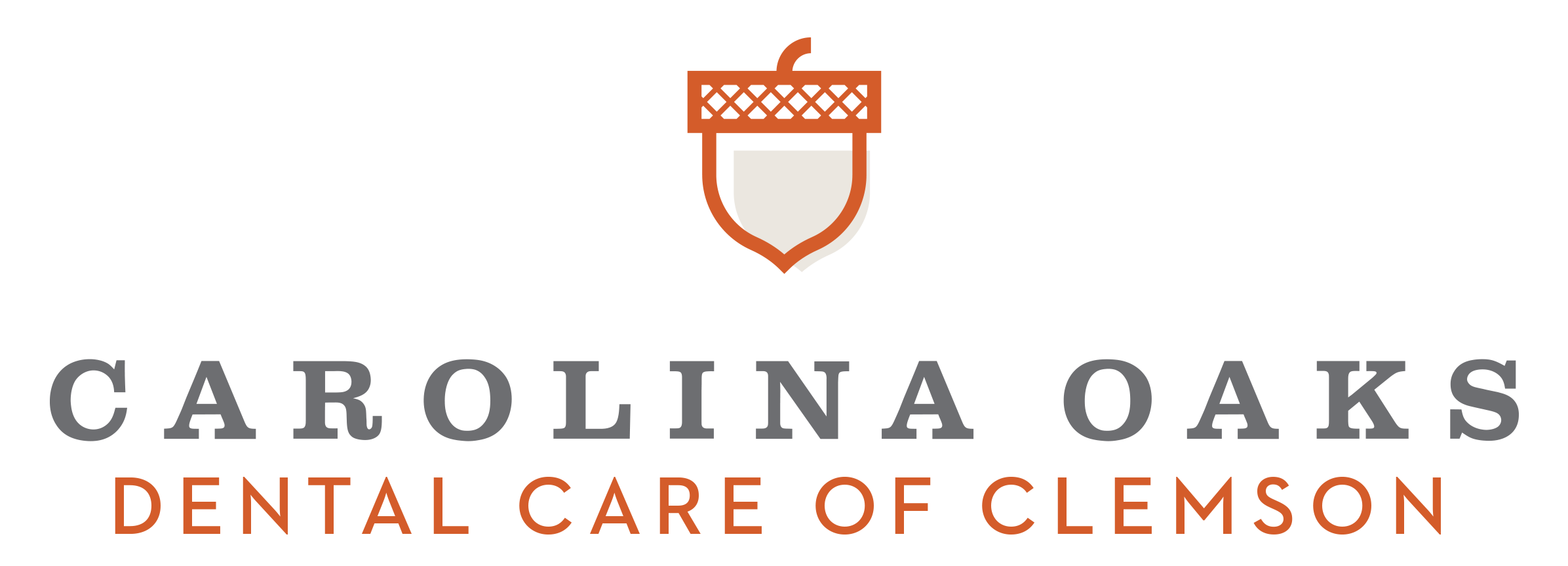Elite athletes tend to be in peak physical condition thanks to rigorous training and a healthy diet. That’s why it might be pretty surprising to hear that a study conducted at University College London (UCL) found this group had high rates of oral disease in spite of brushing twice a day. The team at Carolina Oaks Dental Care of Clemson will be taking a look at why this is and what the takeaways are for active people.
The Study
The study on athletes and oral health, which was published in the British Dental Journal, was carried out by the research team at UCL Eastman Dental Institute. They surveyed 352 male and female professional and olympic athletes across 11 different sports, including swimming, rugby, cycling, football, hockey, rowing and sailing.
The median age of the athletes was 25 years old. The researchers also performed dental checkups to measure gum health, tooth decay and acid erosion of the enamel.
The Findings
While poor oral hygiene is one of the most common causes of gum disease and tooth decay, the athletes were diligent in their oral care. 94% reported brushing their teeth twice a day and 44% said they floss regularly. This is markedly higher than the general population where an estimated 75% of people brush twice a day and only 21% floss daily.
The researchers also found that most of the athletes kept up with routine dental visits, had healthy diets overall and were non-smokers.
In spite of this, the dental check-ups revealed that 49.1% of the subjects had untreated tooth decay, the majority had inflamed gums and 32% said their oral health had a negative effect on their performance and training.
What Were the Causes of Poor Oral Health in the Athletes?
The athletes frequently used sports drinks, bars and energy gels during competition and training. In fact, 80% said they regularly had sports drinks.
These products are high in sugar and carbohydrates. While that can help elite athletes maintain energy levels, the bacteria in the mouth feed on sugar and starches. When they do, they release acids that leach minerals from the tooth enamel, a process known as demineralization. Over time, when demineralization isn’t consistently countered by remineralization (adding minerals back into the enamel), tooth decay occurs.
Another reason why sports drinks are bad for teeth and one of the causes of cavities is because they’re acidic. While the teeth are already dealing with acid attacks from the sugar, the acidity speeds up enamel erosion, making the situation worse.
An additional contributing factor is dry mouth, or xerostomia. Several studies have demonstrated a reduction in saliva flow during intense exercise, possibly due to a combination of breathing through the mouth, dehydration and stress. Saliva is essential for remineralization.
How to Improve Your Oral Health While Staying Active
Regular exercise is a key to good health and these studies aren’t saying that people shouldn’t engage in vigorous physical activity. But athletes and active people can take measures to minimize the impact on their teeth and gums.
Here are a few tips from our Clemson, SC dentists to keep your smile in top-notch shape:
-
Avoid sports drinks and energy bars and gels or, at least, limit your intake.
Sports drinks, gels and bars may be beneficial for replacing electrolytes, sugar and sodium in elite athletes engaging in heavy exercise that lasts for more than an hour. However, it doesn’t look like they have much benefit for people engaging in light or moderate activity or short-term exercise (under an hour).
And some of the studies that have said they’re good for the everyday person were actually funded or tied to sports drink companies, so take them with a grain of salt.
The truth is, for most athletes and exercisers, the harm these products do to the teeth isn’t worth the minimal and hypothetical perks. Water is effective for staying hydrated and remains the gold standard today.
The key? Drink water before you feel thirsty and ensure you’re well hydrated prior to working out. Refuel after a run, gym session or game with something smile-friendly and packed with protein and nutrients like greek yogurt and some fresh berries. -
If you do drink sports drinks, lessen their negative effect.
If you do decide to drink sports drinks or give them to your kids, alternate sips of the sports drink with sips of water. This will help rinse away some of the sugar and acid.
Be sure to rinse your mouth out really with water after finishing the beverage as well. Wait at least 30 minutes after having a sports drink to brush your teeth. Brushing right away can damage enamel while it’s in its temporarily weakened state from the acidity. -
Stimulate saliva flow.
Combat the dry mouth that can happen with endurance training by getting your saliva going throughout the rest of the day. Drink plenty of water and consider chewing sugarless gum or sucking on sugar-free mints with xylitol after meals.
If dry mouth continues to be a problem, talk with your Clemson dentist. You may also want to switch to an over-the-counter mouthwash formulated for dry mouth. -
Eat plenty of remineralizing foods.
Certain foods can help to remineralize your teeth, which counteracts some of the minerals lost from acid attacks, dry mouth and acidic sports drinks. Eggs, yogurt, fat-free milk, nuts, cheese, grass-fed meat, mushrooms, broccoli, salmon, tofu and avocados are all good options.
-
Use a fluoride toothpaste.
Fluoride strengthens the enamel and makes it more resistant to acids. It’s a powerhouse when it comes to cavity prevention. Brush your teeth at least twice a day with a fluoride toothpaste. If you’re extra prone to cavities, add a fluoride mouthwash to the mix too.
-
Practice good oral hygiene.
This one is obvious, but the athletes in the study had pretty good oral hygiene and still experienced dental disease. If they didn’t brush and floss regularly, the outcome would have been worse. So be sure to brush your teeth twice a day and floss once daily.
-
Have a dental exam and cleaning every six months.
Dental exams and cleanings are crucial for maintaining a healthy mouth. These wellness visits can reduce your risk of tooth decay and gum disease and they give the dentist a chance to catch little problems before they become big ones. Tell your dentist that you’re an athlete and they’ll provide you with personalized recommendations.
-
Invest in a high quality athletic mouthguard.
One thing the study didn’t look at was orofacial trauma, which is extremely common in sports. If you do any type of activity that could result in a blow to the face, wear a mouthguard to prevent injury, including knocked-out teeth, jaw fractures, chipped or cracked teeth and soft tissue lacerations.
Schedule a Visit with a Dentist in Clemson, SC
Book an appointment at Carolina Oaks Dental Care of Clemson. Dr. Molly Netzler, Dr. Tait Carpenter, Dr. Stephen Parker and Dr. Katie Sino can help you keep your teeth and gums healthy, so you can continue to enjoy your active lifestyle.



